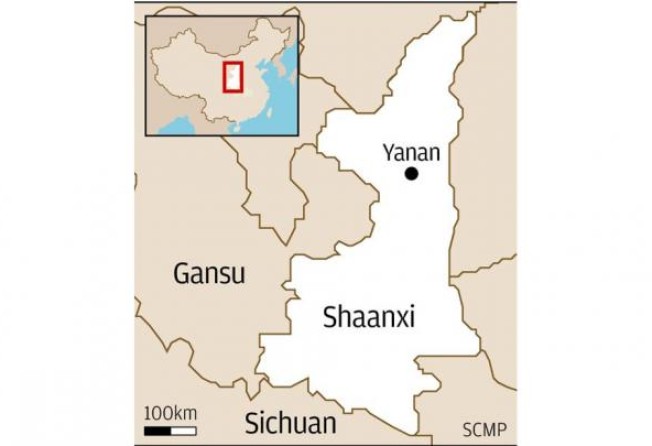
Yanan officials move mountains, literally, to expand city
After 33 hills are levelled to clear way for huge urbanisation project, fears are expressed on safety and social implications for iconic city

Yanan, the iconic centre of the Communist Party's revolutionary past, has answered the central government's call for urbanisation by flattening an area of the erosion-prone Loess Plateau almost as large as Hong Kong Island.
Thousands of excavators and dump trucks have worked around the clock since April to level 33 hills in the city's suburbs, The Time Weekly magazine reported. The 78.5-square-kilometre development would more than double the urban area of Yanan, which served as refuge to Mao Zedong's Red Army after the "long march".
Local officials hope the 100 billion yuan (HK$123 billion) project will help the booming oil town overcome its space crunch. With a Y-shaped footprint wedged between three mountains, Yanan has a population density of 14,700 people per square kilometre, a figure similar to Beijing and Shanghai.
An earlier report by the 21st Century Business Herald said about 200,000 people would be moved to the new town once construction is finished.
Some Yanan residents welcomed this modern version of the parable "Yu Gong moving away the mountains", in which immortals intervene and end a family's long struggle to move a mountain in front of their home.
But the project also met strong criticism online yesterday, with some internet users ridiculing it as reckless.
"Why do we have to be so defiant to go against the natural forces?" wrote one Sina Weibo user. "Is it really necessary to destroy the natural ecology to urbanise? Or is the government just trying to grab money from the massive project?"
Others were more worried about the safety of any buildings on the newly levelled landscape. "The soils on Loess Plateau are easily eroded by rainfall," another internet user said. "Building in such conditions could be very dangerous."
The Time Weekly article suggested that some officials were also concerned about the site conditions.
"Some of the technical problems are unprecedented," it quote an official from the Shaanxi provincial scientific department as saying. "The uncertainties will increase construction costs."
The mountain levelling project is the first large-scale geotechnical engineering on collapsible loess, which is formed by layers of windblown silt and tends to soften and sink after rain even without the weight of buildings.
The new town's management committee said more than 30 experts had assessed the safety risks and concluded that the project is "scientifically feasible", according to the report. An engineer said the soil would be compacted layer by layer to minimise settling.
Wang Shengxue , director of the urban institute at Changan University in Shaanxi, said the urbanisation should be supported by a real competitive market need, instead of empty plans to create urban areas.
Chen Yao , from the Chinese Academy of Social Sciences, said Yanan needs to take the Loess Plateau's fragile geology into greater account when mapping out growth plans.
"The scale of the development plan should be in line with the natural resources, as well as its own economic situation," Chen said.